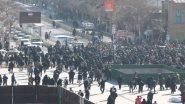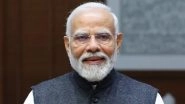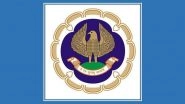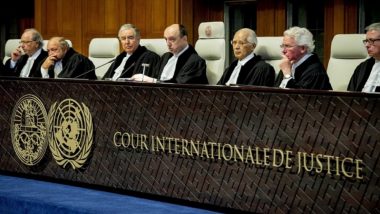Iran has filed a case against the United States government at the International Court of Justice against the Trump Administration’s sanctions saying their imposition violates the terms of a 1955 friendship treaty between the two countries.
U.S. President Donald Trump pulled out of a 2015 nuclear deal between Iran and the five permanent members of the U.N. Security Council in May this year, with his administration then announcing unilateral economic sanctions against Tehran.
The oral hearings, essentially a request by Iran for a provisional ruling, will last for four days, with a decision to follow within a month. After lodging the case Tehran released a statement: "Iran will put up the strongest resistance to the U.S. economic strangulation, by all peaceful means." Iran is set to make opening arguments in The Hague this week against the unilateral sanctions, which were slapped back on by the U.S. three weeks ago.
Iran's representative Mohsen Mohebi branded the U.S. sanctions "naked economic aggression". His team of lawyers told the court in The Hague that the measures were already devastating Iran's economy and threatening the welfare of its citizens.
"The United States is publicly propagating a policy intended to damage as severely as possible Iran's economy and Iranian nationals and companies," Mohebi said.
London-based lawyer Samuel Wordsworth, for Iran, told the court the measures were threatening Iranians' access to medicines as well as disrupting business deals.
The United States responded to Iran's request to the International Court of Justice for suspension of U.S.-linked sanctions by saying that U.S. will "vigorously defend" itself in the ICJ. U.S. Secretary of State Mike Pompeo said, "We will vigorously defend against Iran's meritless claims this week in The Hague".
U.S. lawyers are due to give their response in arguments before the court on Tuesday, with experts expecting them to challenge the ICJ's jurisdiction over the matter. Pompeo said Iran's lawsuit was "an attempt to interfere with the sovereign rights of the United States to take lawful actions, including re-imposition of sanctions, which are necessary to protect our national security".
The ICJ is expected to take a couple of months to decide whether to grant Tehran's request for a provisional ruling. A final decision could take years.
The ICJ is the United Nations tribunal for resolving international disputes. Its rulings are binding, but it has no power to enforce them and on rare occasions they have been ignored by some countries, including the United States.
(The above story first appeared on LatestLY on Aug 28, 2018 07:04 AM IST. For more news and updates on politics, world, sports, entertainment and lifestyle, log on to our website latestly.com).













 Quickly
Quickly


